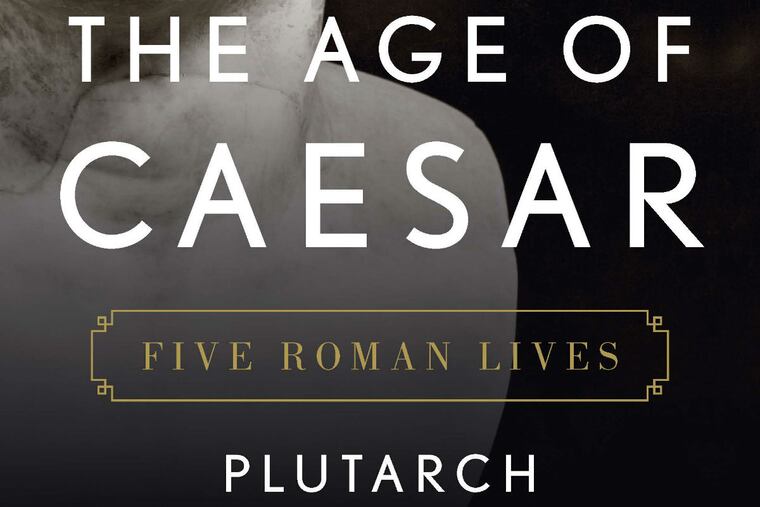'Age of Caesar: Leaders in times of tumult, told for our times
. 'The age of Caesar," writes classicist Mary Beard, "was a world of political murder, street violence, constant warfare both inside and outside Rome."

The Age of Caesar: Five Roman Lives
By Plutarch.
Translated from the Greek by Pamela Mensch
Edited by James Romm. Introduction by Mary Beard Norton. 393 pp. $35.
Reviewed by Michael Dirda
'The age of Caesar," writes classicist Mary Beard, "was a world of political murder, street violence, constant warfare both inside and outside Rome."
That story is vividly retold in these newly translated short biographies of Pompey, Julius Caesar, Cicero, Brutus, and Mark Antony, all five extracted from Plutarch's famous Lives of the Noble Greeks and Romans.
The current book opens with an account of the conquests of Pompey and his rivalry with Julius Caesar. The other four lives cover territory made familiar by Shakespeare's Roman plays, largely revolving around Caesar's assassination and its aftermath. Many of the same events are thus presented, Rashomon-like, from several slightly differing viewpoints.
Famous moments abound: Caesar pauses at the Rubicon with his army, waffles a bit, and finally says, "Let the die be cast" as he crosses the river and marches on Rome. In a particularly chilling set piece, Cicero stretches out his neck for his assassin Herennius to strike. Herennius cuts off the orator's head and hands, which Antony brazenly displays in the capital.
Though Plutarch admires, more or less, Pompey's martial prowess, Caesar's single-mindedness, and Brutus' patriotism, he shows clear contempt for Mark Antony. Upright citizens, he writes, "abhorred his drunkenness at all hours, his heavy expenditures, his wallowing in love affairs, his days in sleeping or walking about distracted and hung over, and his nights at revels, theaters, and the wedding festivities of mimes and buffoons." Of course, "the crowning evil that befell him was his passion for Cleopatra." Plutarch writes that the serpent of old Nile wasn't incomparably beautiful, but that "her presence cast an inescapable spell. ... It was a pleasure merely to hear the sound of her voice." His account of her love affair with Antony, which began with calculated seduction and ended in something close to tragedy, has moved readers to tears for almost 2,000 years.
Cleopatra's suicide by asp brings The Age of Caesar - and all of Plutarch's Lives, for that matter - to a close. Throughout those spirited and stately volumes, Plutarch regularly shows that great leaders transcend their own purely material interests and petty, personal vanities. Noble ideals actually do matter, in government as in life.
This review originally appeared in the Washington Post.